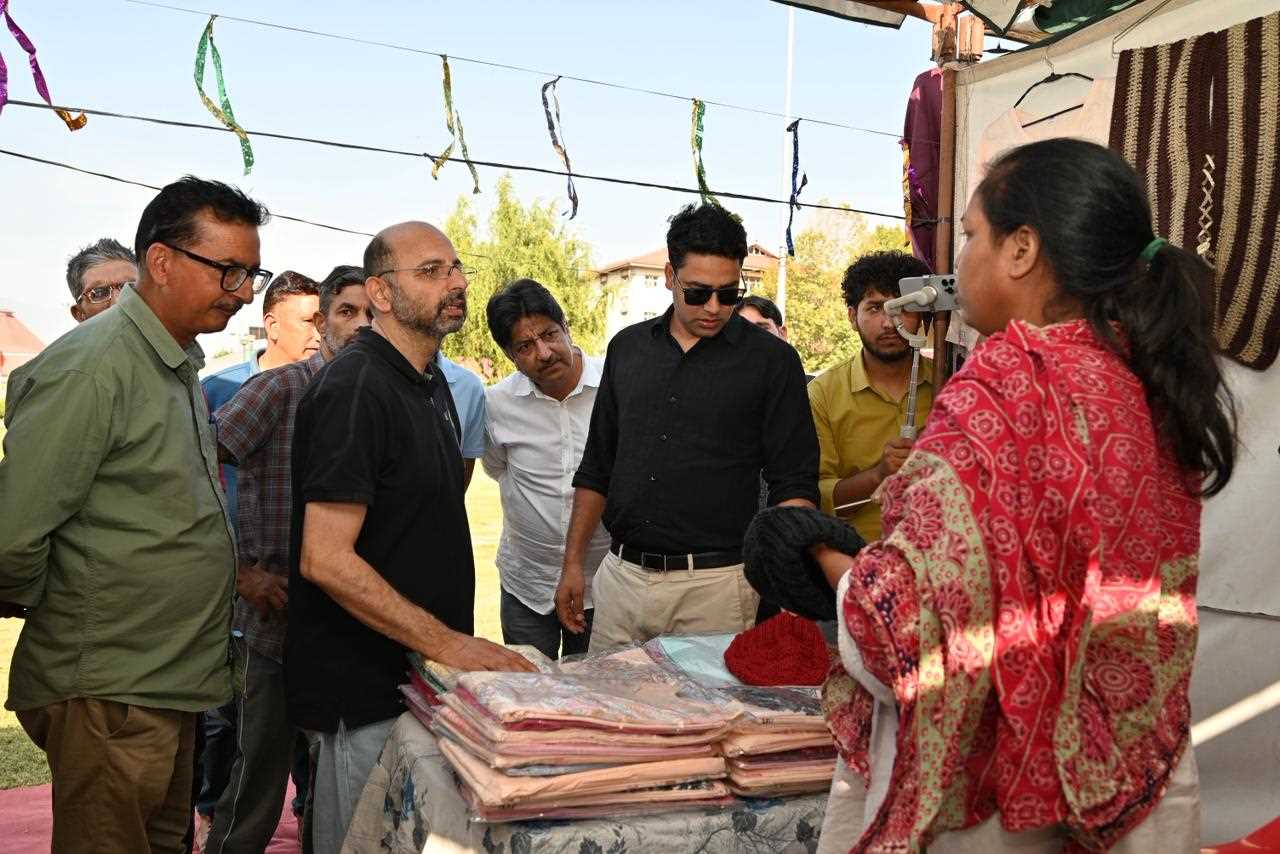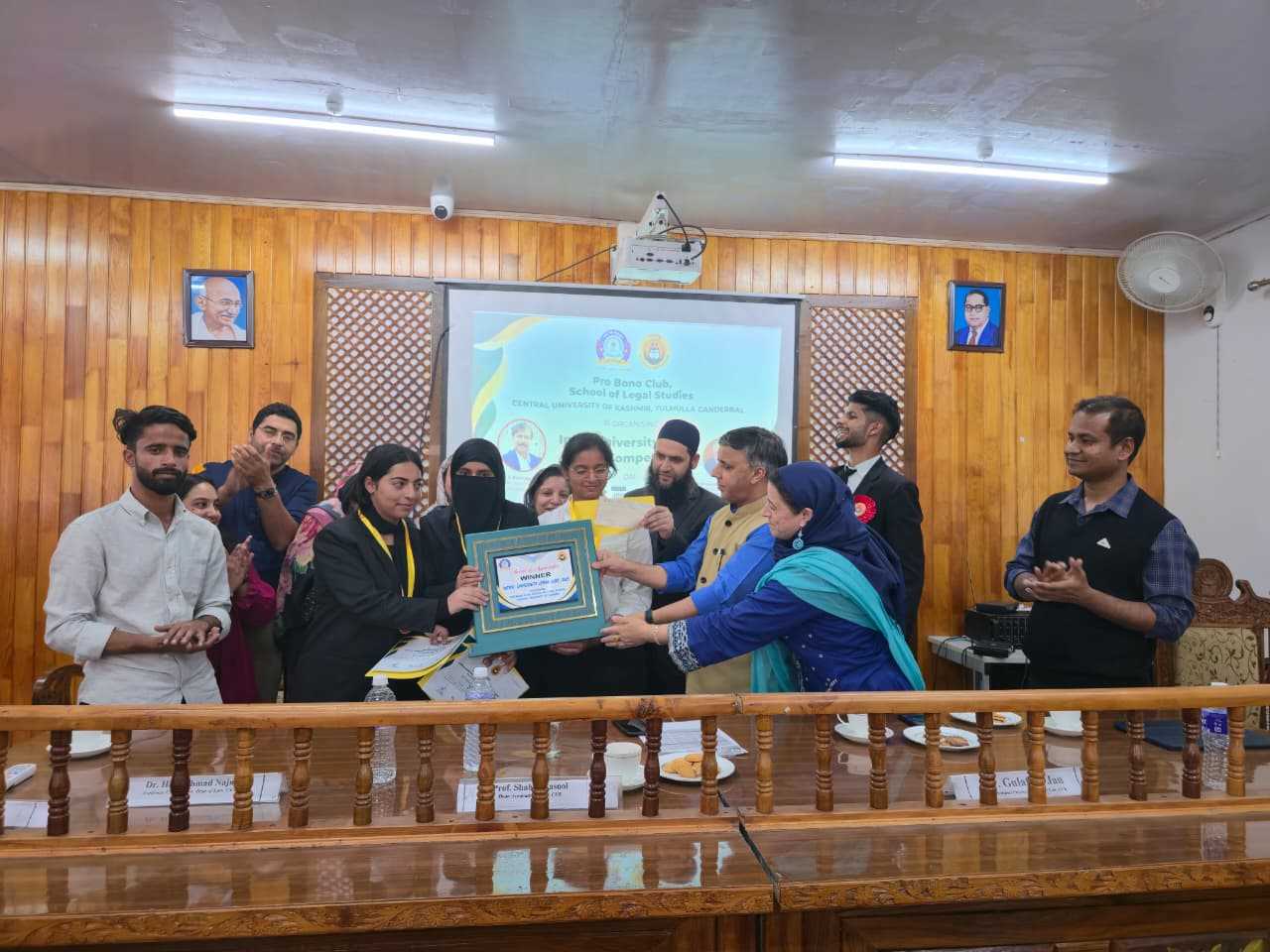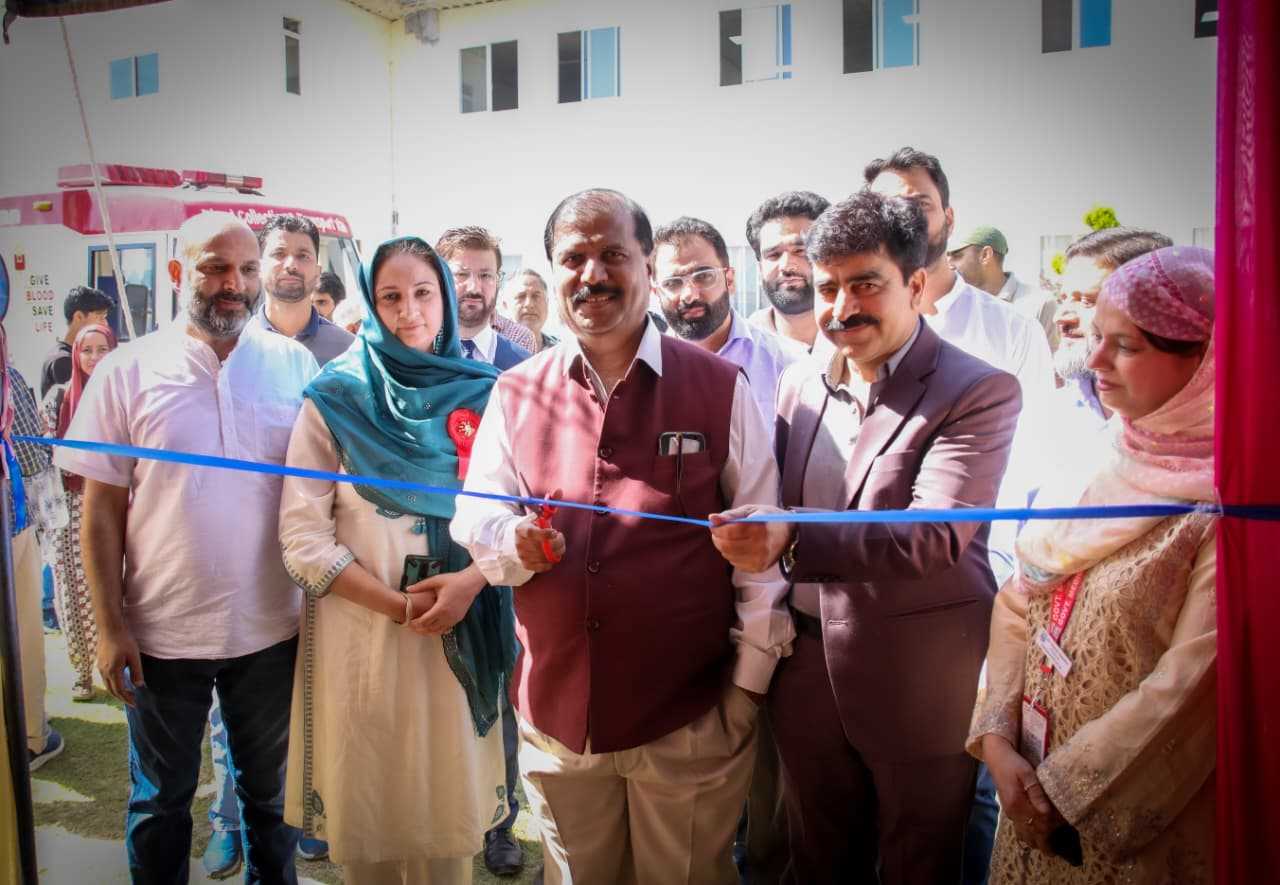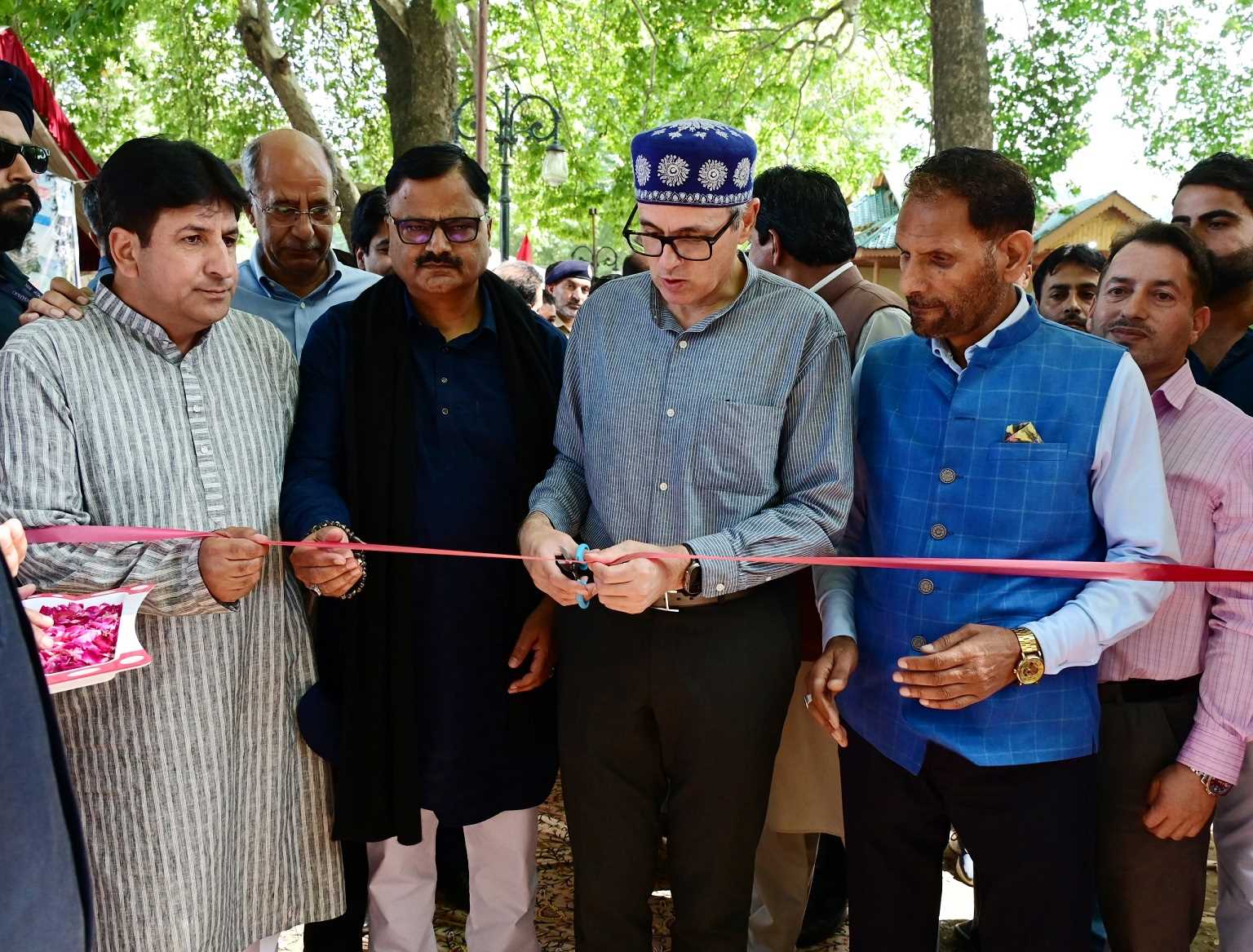
In Islam, trust (amanah) is not just a social courtesy but a sacred covenant. Friendship is amanah, sisterhood is amanah, the bond of blood and companionship is amanah. To betray them is not merely to wound a fellow human but to fracture something divine placed in our hearts
They say betrayal is the sharpest of all knives, because it strikes not from the front but from the embrace. In Kashmir’s Ganderbal, two wounds now bleed that truth. A brother lost to the hands of his friends, a sister silenced by the hands of her own sister. These are not just crimes recorded in police files; they are heartbreaks etched into the soul of a people, reminders that sometimes the deadliest blows come wrapped in the intimacy of love and trust.
In Islam, trust (amanah) is not just a social courtesy but a sacred covenant. Friendship is amanah, sisterhood is amanah, the bond of blood and companionship is amanah. To betray them is not merely to wound a fellow human but to fracture something divine placed in our hearts. When Ajaz Ahmad, just twenty-two years old, was strangled with a wire by his own companions, men he shared games and laughter with it was not only his life extinguished, but the sanctity of amanah torn apart before the eyes of his Creator.
The crime was cold in its planning. CCTV footage revealed the purchase of the very wire that tightened around His throat. The killers lured him with familiarity, executed him with cruelty, and cast him into the canal as if the waters could wash away their sin. But as the Qur’an says, “Do not think Allah is unaware of what the wrongdoers do. He only delays them…”The deception of men cannot veil the sight of God. The marks upon Ajaz’s neck, the wire recovered, the truth unveiled, all became testimony that no crime, however hidden, escapes the judgment inscribed into the fabric of the universe. And yet, as the community grieved Ajaz, another wound reopened. Not long before, in the same district, a sister killed her sister. A bond formed in the womb, nurtured by shared childhood, transformed into a weapon of envy and anger.
Iqbal, in his searing vision, once wrote:
“Yaqeen, muhabbat, amal ka raaz hai zindagi”
What, then, happens when yaqeen is lost, when mohabbat is corroded, when the self is not raised but diminished into jealousy and treachery? Life, which should have been luminous with faith and action, darkens into violence even within the closest ties. Ajaz’s death, the sister’s death, are not simply murders; they are collapses of Khudi, of the very inner dignity that Iqbal urged this land to nurture.
Kashmir has seen grief before_ wars, conflict, political violence, but these wounds cut differently. They are private betrayals, erupting inside the sanctuaries of home and friendship. They make a mother wonder whether the companions her son walks with are truly companions, or silent conspirators. They make a father pray longer, asking God to shield his daughters from dangers that now seem to rise not only from outside but also from within. The mourning is not only for lives lost but for trust broken, for bonds corrupted, for values crumbling. The Qur’an tells us, To take a life unjustly is described as killing all of humanity. How much darker, then, is the crime when the murdered is a friend, a sister, a confidant? In that moment, the betrayal is not of one person but of the very meaning of friendship and kinship. The Prophet PBUH warned of a time when “a man will fear only his friend and his father” and in Ganderbal, that warning feels chillingly near.
Yet within this sorrow, there is also a mirror. What does it reveal? It shows us a generation adrift, caught between worldly temptations and the erosion of moral anchors. It shows us the urgent need to restore in our children the sanctity of trust, the patience of forbearance, the courage to forgive rather than destroy. It reminds us that Islam is not just ritual but character, not just prayer but the safeguarding of relationships. Without this, even the sacred names of friend and sister can twist into daggers. Ajaz’s and the sister’s incidents are threads in the same tapestry of warning. They tell us that betrayal does not descend from the skies suddenly; it germinates in small seeds of jealousy, unspoken anger, festering wounds left untended. Had reconciliation been taught, had empathy been practiced, had faith been anchored, perhaps these seeds would not have ripened into bloodshed.
Iqbal urged this very generation to awaken;
But how can we soar like falcons if we clip one another’s wings? How can we rise if we strangle the very hands meant to lift us? The tragedies of Ganderbal are chains upon our collective soul, and only through faith, empathy, and justice can they be broken. Justice will come through courts, but healing must come through conscience. The people of Kangan and all of Ganderbal now protest not merely for legal punishment but for moral renewal. They want assurance that the next friendship will not end in betrayal, that the next sisterhood will not dissolve into violence. They demand, in essence, a return to Amanah, to the Qur’anic command that trusts be honored, that loyalty be sacred, that love be shielded from envy’s poison. For the families left behind, the graves are fresh, the silence unbearable. For the community, the protests are loud, but the questions louder still: How do we protect our children from becoming victims or perpetrators—of such darkness? How do we rebuild faith where betrayal has sown doubt?
The answers lie where they always have in the remembrance of God, in the teachings of His Messenger ﷺ, in the poetry of our own Iqbal who called us back to dignity, compassion, and faith. Only by reviving these can Kashmir ensure that the blood of Ajaz, and the sister lost to her sister, does not fade into another statistic, but becomes a turning point toward renewal. And so, Ganderbal weeps. The canals that carried Ajaz’s body, the home that carries a sister’s absence both are rivers of sorrow now. But perhaps from these rivers, if guided by conscience and faith, will flow a new clarity: that trust is sacred, that betrayal is ruin, and that no love is real unless it is guarded by God.
Email:---------------------: asiakashmiri001@gmail.com




In Islam, trust (amanah) is not just a social courtesy but a sacred covenant. Friendship is amanah, sisterhood is amanah, the bond of blood and companionship is amanah. To betray them is not merely to wound a fellow human but to fracture something divine placed in our hearts
They say betrayal is the sharpest of all knives, because it strikes not from the front but from the embrace. In Kashmir’s Ganderbal, two wounds now bleed that truth. A brother lost to the hands of his friends, a sister silenced by the hands of her own sister. These are not just crimes recorded in police files; they are heartbreaks etched into the soul of a people, reminders that sometimes the deadliest blows come wrapped in the intimacy of love and trust.
In Islam, trust (amanah) is not just a social courtesy but a sacred covenant. Friendship is amanah, sisterhood is amanah, the bond of blood and companionship is amanah. To betray them is not merely to wound a fellow human but to fracture something divine placed in our hearts. When Ajaz Ahmad, just twenty-two years old, was strangled with a wire by his own companions, men he shared games and laughter with it was not only his life extinguished, but the sanctity of amanah torn apart before the eyes of his Creator.
The crime was cold in its planning. CCTV footage revealed the purchase of the very wire that tightened around His throat. The killers lured him with familiarity, executed him with cruelty, and cast him into the canal as if the waters could wash away their sin. But as the Qur’an says, “Do not think Allah is unaware of what the wrongdoers do. He only delays them…”The deception of men cannot veil the sight of God. The marks upon Ajaz’s neck, the wire recovered, the truth unveiled, all became testimony that no crime, however hidden, escapes the judgment inscribed into the fabric of the universe. And yet, as the community grieved Ajaz, another wound reopened. Not long before, in the same district, a sister killed her sister. A bond formed in the womb, nurtured by shared childhood, transformed into a weapon of envy and anger.
Iqbal, in his searing vision, once wrote:
“Yaqeen, muhabbat, amal ka raaz hai zindagi”
What, then, happens when yaqeen is lost, when mohabbat is corroded, when the self is not raised but diminished into jealousy and treachery? Life, which should have been luminous with faith and action, darkens into violence even within the closest ties. Ajaz’s death, the sister’s death, are not simply murders; they are collapses of Khudi, of the very inner dignity that Iqbal urged this land to nurture.
Kashmir has seen grief before_ wars, conflict, political violence, but these wounds cut differently. They are private betrayals, erupting inside the sanctuaries of home and friendship. They make a mother wonder whether the companions her son walks with are truly companions, or silent conspirators. They make a father pray longer, asking God to shield his daughters from dangers that now seem to rise not only from outside but also from within. The mourning is not only for lives lost but for trust broken, for bonds corrupted, for values crumbling. The Qur’an tells us, To take a life unjustly is described as killing all of humanity. How much darker, then, is the crime when the murdered is a friend, a sister, a confidant? In that moment, the betrayal is not of one person but of the very meaning of friendship and kinship. The Prophet PBUH warned of a time when “a man will fear only his friend and his father” and in Ganderbal, that warning feels chillingly near.
Yet within this sorrow, there is also a mirror. What does it reveal? It shows us a generation adrift, caught between worldly temptations and the erosion of moral anchors. It shows us the urgent need to restore in our children the sanctity of trust, the patience of forbearance, the courage to forgive rather than destroy. It reminds us that Islam is not just ritual but character, not just prayer but the safeguarding of relationships. Without this, even the sacred names of friend and sister can twist into daggers. Ajaz’s and the sister’s incidents are threads in the same tapestry of warning. They tell us that betrayal does not descend from the skies suddenly; it germinates in small seeds of jealousy, unspoken anger, festering wounds left untended. Had reconciliation been taught, had empathy been practiced, had faith been anchored, perhaps these seeds would not have ripened into bloodshed.
Iqbal urged this very generation to awaken;
But how can we soar like falcons if we clip one another’s wings? How can we rise if we strangle the very hands meant to lift us? The tragedies of Ganderbal are chains upon our collective soul, and only through faith, empathy, and justice can they be broken. Justice will come through courts, but healing must come through conscience. The people of Kangan and all of Ganderbal now protest not merely for legal punishment but for moral renewal. They want assurance that the next friendship will not end in betrayal, that the next sisterhood will not dissolve into violence. They demand, in essence, a return to Amanah, to the Qur’anic command that trusts be honored, that loyalty be sacred, that love be shielded from envy’s poison. For the families left behind, the graves are fresh, the silence unbearable. For the community, the protests are loud, but the questions louder still: How do we protect our children from becoming victims or perpetrators—of such darkness? How do we rebuild faith where betrayal has sown doubt?
The answers lie where they always have in the remembrance of God, in the teachings of His Messenger ﷺ, in the poetry of our own Iqbal who called us back to dignity, compassion, and faith. Only by reviving these can Kashmir ensure that the blood of Ajaz, and the sister lost to her sister, does not fade into another statistic, but becomes a turning point toward renewal. And so, Ganderbal weeps. The canals that carried Ajaz’s body, the home that carries a sister’s absence both are rivers of sorrow now. But perhaps from these rivers, if guided by conscience and faith, will flow a new clarity: that trust is sacred, that betrayal is ruin, and that no love is real unless it is guarded by God.
Email:---------------------: asiakashmiri001@gmail.com
© Copyright 2023 brighterkashmir.com All Rights Reserved. Quantum Technologies